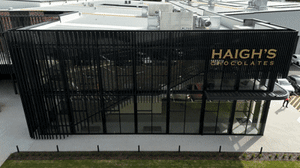Pact Group saw its half year result drop $21m into the red, mainly as the result of a $65m write down on non-cash impairment of its contract manufacturing division, which suffered a buffeting over the six months to December, while its packaging and sustainability segment delivered higher earnings, and Asia business showed strong growth.
Sales revenue was up by four per cent compared to $927m from $894m, but this was almost all as a result of Pact passing through higher input costs to customers, with volumes steady from last year.
Its $21m net loss compared to $50m net profit for the same period last year. Underlying net profit after tax was down by 25 per cent to $39m from $52m in the same period last year. EBIT was down by $16m to $83m.
Sanjay Dayal, CEO and managing director at Pact, called the operating environment of the six months “unprecedented”, and said ongoing freight issues, pallet shortages, rapidly rising input costs, and Covid absenteeism, had all pressured the business, but said the Pact performance was “pleasing”, and said that the company had delivered all projects on time and on budget.
Dayal said the packaging and sustainability segment was a highlight, with a three per cent rise in EBIT to $56m, and said the company’s Asia business was showing “strong growth”.
Pact is looking to customer diversification, and to that end is investing $20m in a new liquid filling line to on-shore volumes in high speed filling.
Commenting on the first six months chief financial officer Paul Washer said, “The speed of price increases in the half year took some managing, and was a challenge. Contract manufacturing only managed to recoup 20 per cent of its price increases.”
Dayal said a turnaround was underway in its contract manufacturing business, and that he was “confident” the unit could be brought back to a $20m EBIT business. He said, “We are focused on improving performance here, and the turnaround is underway. We have appointed new leadership to drive improvements in business fundamentals, including the recovery of ongoing cost inflation, and seek new business opportunities with greater urgency. While the operating environment will remain challenging in the near-term, we expect value to return as conditions normalise and the turnaround progresses.”
As Covid recedes so has one of the areas that Pact was involved in, with Washer saying the hand sanitiser business had been discontinued, due to a massive oversupply in the market. This was handled by the contract manufacturing division and its demise has contributed to the problems in the unit, which Pact unsuccessfully tried to sell last year.
Speaking on the various segments Dayal, said, “The results in our packaging and materials handling segments in the period have been strong, despite widespread and persistent pandemic related challenges faced by the entire sector. This includes significant cost inflation and widespread supply chain disruption impacting the availability of raw materials, pallets, and labour.
“In the packaging and sustainability segment we delivered higher earnings, with underlying EBIT up 3 per cent. Our operational agility enabled us to support our customers in a disrupted environment, delivering good volume growth. The closures, dairy and agriculture sectors performed particularly well. Increased demand for sustainable packaging in the fresh food segment also delivered growth. While supply chain challenges created some operational inefficiencies, this was mitigated by improvements in other areas. An intense focus on recovering increasing costs delivered outstanding results.
“In the materials handling and pooling segment, we delivered good organic growth in fresh produce crate pooling and maintained solid volumes in garment hanger reuse, albeit volumes here were slightly down on the robust post-lockdown volumes delivered in the prior year. We made great progress in recovering higher freight costs, which particularly affected the supply chain businesses, however the price/cost equation was slightly unfavourable in the first half. Some operational inefficiencies arising from supply chain disruption also impacted earnings.
Dayal highlighted the company’s environmental progress in his investor presentation, and said, “We are delighted to announce the commissioning of our new recycling facility in Albury is nearing completion. This project will be delivered on time and on budget, which is quite a feat in the current pandemic climate. Albury is the first of several projects we have committed to with leading industry partners, that are supporting a step-change in Australia’s capability to recycle waste locally. Albury will produce around 20,000 tonnes of recycled PET annually for use in beverage bottles and other food packaging. A further two recycling projects, which will lift recycling output by an additional 40,000 tonnes, remain on track for commissioning in FY23.
“These projects give Pact access to quality food grade recycled content for use in food and other packaging and complement our existing 40,000 tonne recycling capability. Access to recycled materials differentiates Pact in our packaging and industrial markets, where our customers are increasingly seeking sustainable alternatives. We have delivered organic growth in the fresh food sector through contract wins for sustainable packaging, underpinned by our recycling and manufacturing capability.
“To meet growing demand for sustainable products, we are investing around $80m over the next three years to enhance our manufacturing capability. This includes enabling up to 50 per cent recycled content in milk bottles and 100 per cent recycled content in beverage bottles. In the area of industrial products, we are investing to increase manufacturing capacity for garbage bins, which will enable Pact to increase the use of recycled content in bins and to meet increased demand from four-bin recycling initiatives across Australia.”
Pact Group shares rose strongly on the half year results and full year outlook, surging by six per cent in opening trade.






